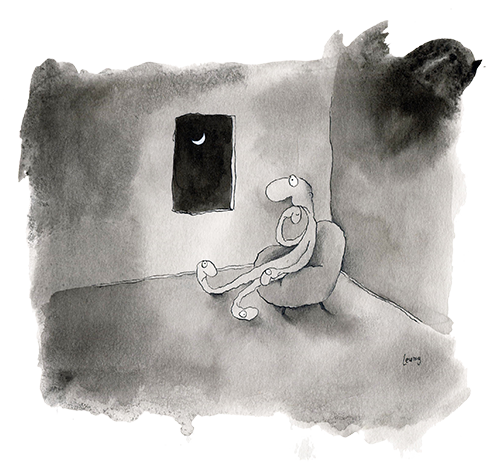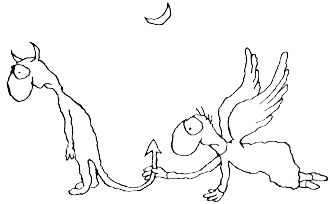Cartooning is a universal folk art that is mostly self taught. It generally employs drawings and symbols, which because of their primal, sub-literary nature may easily side-step the intellectual defences of the reader or viewer. The cartoonist is a descendent of the court jester and as well as helping us to find humour and pathos in our shared predicament, works to discover and express what is repressed in the world, and to say out loud what citizens are beginning to whisper or suspect.
The political cartoonist is traditionally the voice of the permanent opposition and uses overt or surreptitious ridicule to this purpose, as well as using, visual metaphor, simplicity and ambiguous images or words to challenge society's values, to test freedom of speech to the limit, to expose and subvert the pomposity of authority and to make absurdity, hypocrisy and social madness visible.

This voice is not an expert or institutional voice - it is quite distinctly the authentic, peculiar intuitive voice of individual human consciousness.
The cartoonist is not interested in showing that the enemy is in league with the devil but rather the extent to which a bit of the devil is in all of us.
Cartoons do not necessarily sum up a situation, nor are they always intended to be conclusive, definitive or balanced; often they are made as extreme provocations or catalysts that can breach repressive taboos or break the stifling silence of rigid conservatism, cultural habit and prevailing notions of respectability.
A cartoonist who supports government policy and conventional wisdom is possibly a propagandist. Dictators and tyrants in history have punished the best of them and employed the worst. Cartoonists may be weakened by prizes and awards, and strengthened by condemnation and legal censure. The true cartoonist is a playful insurgent yet also something of a natural moral philosopher who compulsively and dutifully challenges and resists the powerful, the victorious, the dominant, the fashionable, the well heeled, the well established and the well armed - and in so doing, upholds the importance and value of the powerless, the vulnerable, the voiceless, the world of nature and improbable or neglected ideas. The cartoonist must play devil's advocate and also the more difficult role of angel's advocate.

A healthy and successful cartoon is drawn from conscience and may well be strong, spicy, controversial or passionately scathing; it will often hurt, offend, disgust and cause trouble because it may touch upon the neurotic defences, psychological wounds and sore points in society. It may be very funny but is not necessarily so. It may be enigmatic or mysteriously compelling. It holds up a mirror to all, which is sometimes funny and sometimes painful or embarrassing, but always in the hope of being therapeutic.
Cartoonists are sometimes guided by an instinct that compels them to be humorous in the midst of great seriousness and profoundly serious when all around them people are laughing and being frivolous.
Michael Leunig

